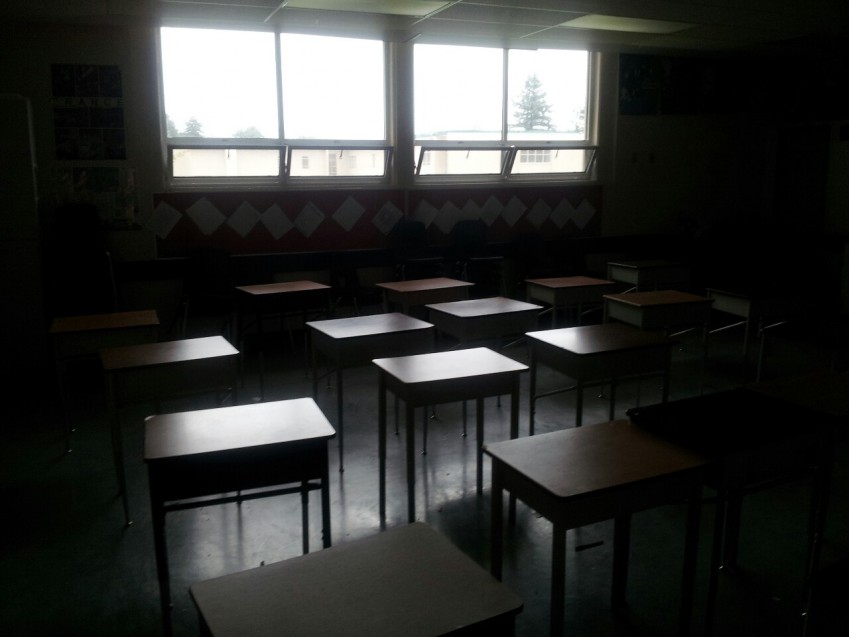By Stephanie Dyer (UFV Alumna) – Email
Print Edition: July 15, 2015
 Today, we see students get passed through the school system, sometimes barely scraping by with any knowledge of the content they’re being taught. It is increasingly hard for teachers to hold students back, and staff are often left having to coddle students along the way, giving them a passing grade when they have clearly proven they don’t know the content.
Today, we see students get passed through the school system, sometimes barely scraping by with any knowledge of the content they’re being taught. It is increasingly hard for teachers to hold students back, and staff are often left having to coddle students along the way, giving them a passing grade when they have clearly proven they don’t know the content.
Why are we failing ourselves, our students and our futures like this? We seem to be allowing students to graduate from high school with the mindset of, “Hey, I can barely show up and try, and still get by? Neat-o!” This is not neat-o at all; it is a travesty. Perhaps this is why employers are noticing a lack of work ethic in their new workers. They’ve learned that they can put in minimal effort and still pass, so why would they change their mindset?
But it is imperative that we do change that mindset! An effective way to educate our youth would be a self-paced system, where students go through education, completing certain concepts and bases of knowledge before they can move on to the next “level” or grade. Rather than the mindset of, “Okay Johnny, it’s now September and that means you start Grade Three today,” it would be: “All right Johnny, now that you actually understand and have mastered printing, we’re gonna move on to the next level.” It would be more about the knowing and understanding of concepts, rather than the calendar dictated system of today. Students would not move on until they proved they knew the content.
We are not all the same; we learn in different ways, grow in different environments, and go through life at different rates than those around us. Why, then, do we have such a regimented system based solely on age and calendar for our learners of today? If students miss a lot of school and don’t know what they need to know in their grade-based curriculum, they still get pulled through with a passing grade, moving on to the next “level,” while not really having completed the steps required to get there. This is not fair to all students.
In an education system where every student is learning at his or her own rate, there might be less incidence of comparing one student to another. I feel it embraces the ideal of individuality and that we all learn at different rates and landmarks. It is like giving 10 people the same video game to complete. They may all go about each level in a different manner. Some of them might complete levels best in the morning, some in the evening, some in small spurts of playing, and some in long, tedious hours of completion. Some of these players will finish the game in a few days, some in a week. Some might take a month or more, depending on their lifestyle. But in the end, they all went through the process, and came out triumphant, independent of how they got there. Apply this analogy to that of learning and education, and I truly believe that we could reform the system that exists today, for the better.
As a perpetual optimist, I see this self-paced schooling working in a three-fold manner; teachers teach the concepts, students learn it at whatever rate they need to understand the concept wholly, and then they show they know in a number of ways. They could write a standard test, make a project, write an essay demonstrating their knowledge, verbally relate what they know, or find some other innovative way of demonstrating knowledge.
At the teacher end of this self-paced schooling, there would need to be a large amount of flexibility and room for each individual student. But as a recent graduate of UFV’s TEP program, I feel these ideals of individualism and flexibility are already foundational skills in the new teachers of today. I have hope for the “levels” to which the new and future teachers of today may take our students.

